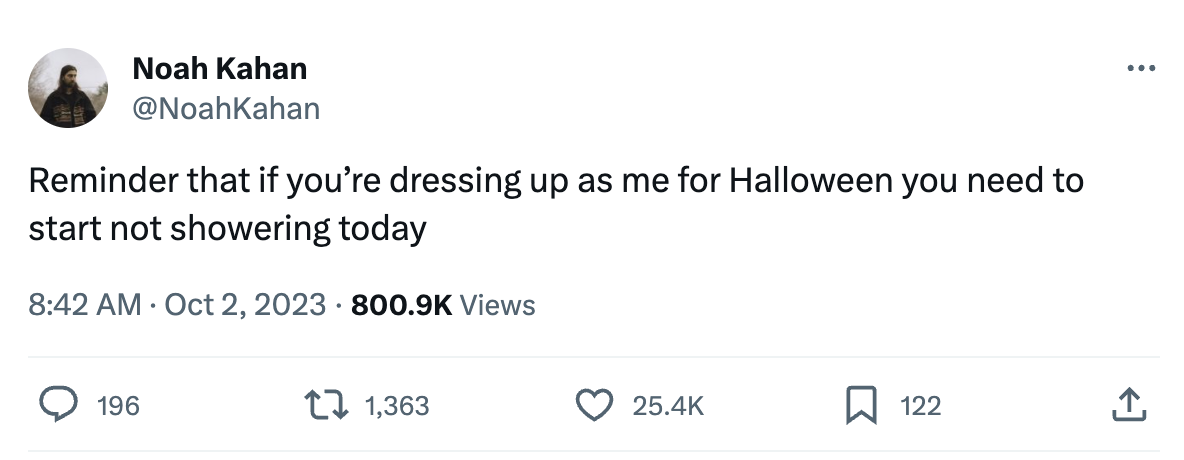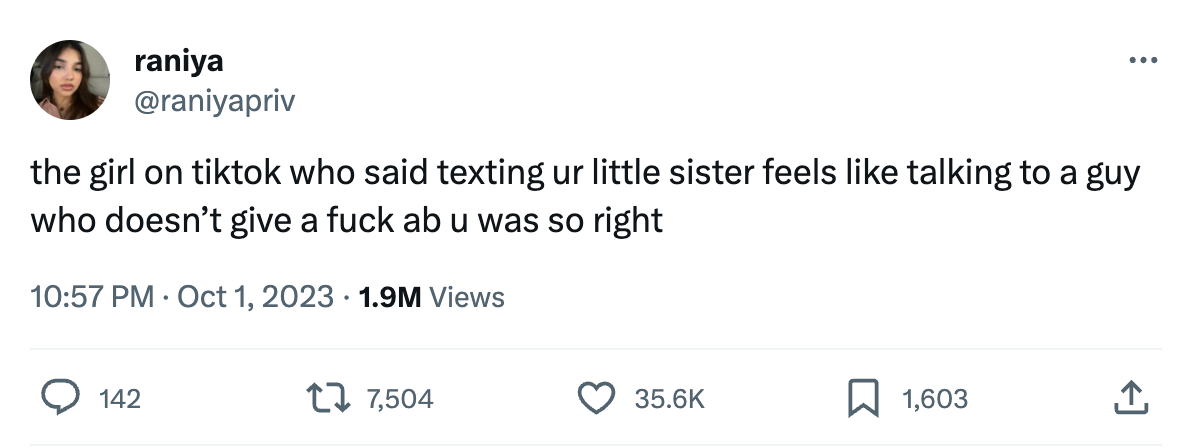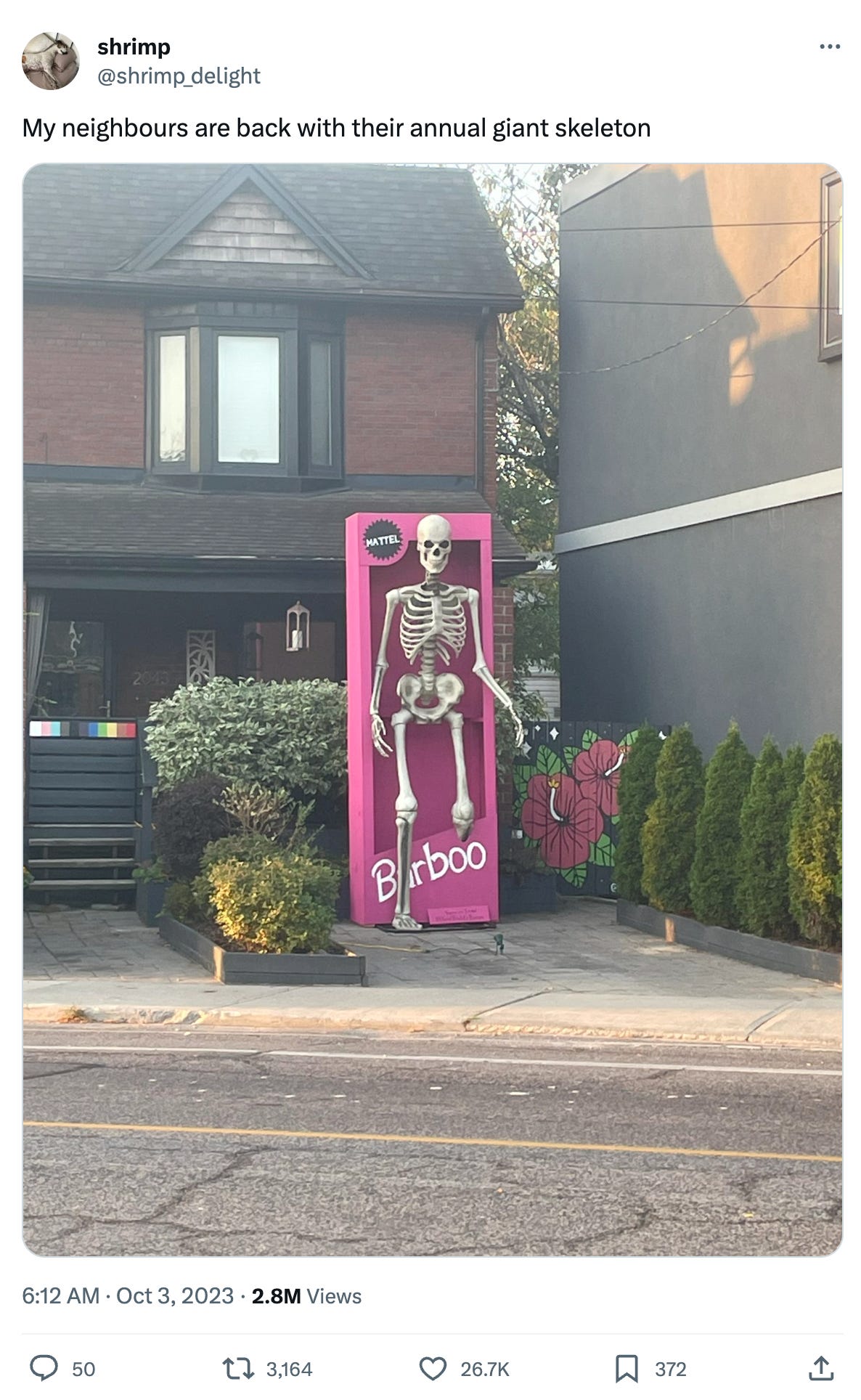Taylor Lorenz on her extremely online history of the internet
Notes on selling books via Instagram stories, fighting with Elon, and which platform is best at shielding users from harassment

When Taylor Lorenz turned in the draft of her new book, Extremely Online, she found that she had written 60,000 words on the history Vine.
“My editor was like, what the hell,” she says, laughing. Lorenz’s incisive commentary on the app’s rise and fall captures the fundamental tension between social platforms and the creators they rely on — a dynamic that been a central focus of her reporting over the past decade. “Vine was TikTok before TikTok,” Lorenz writes. “In 2014, Vine owned the market despite challenges from multiple rivals. The company’s only problem was itself.”
It would not be the last social platform to get in its own way and squander a chance for dominance. In her book, Lorenz casts a sympathetic eye on the people using these platforms to creature culture and build their livelihoods, highlighting cases where platforms’ indifference or outright incompetence threatens to derail the nascent creator economy.
Lorenz describes Extremely Online as “a social history of social media,” starting with the mommy bloggers of the early 2000s and tracing the path of the creator to the TikTok influencers of today. Throughout the book, Lorenz focuses on those creators, providing fresh perspective even when the corporate intrigues they’re caught up in are already well known. (For those of us who live online, at least.)
My favorite part of Extremely Online was, perhaps unsurprisingly, the incredibly detailed history of Twitter that it offers. Lorenz documents how Twitter users created its most popular conventions, from the @ symbol to the hashtag, ultimately inventing themselves the service it would one day become. When open source developer Chris Messina pitched Twitter’s co-founders on codifying the hashtag as an official feature, the men initially rejected the idea, saying hashtags were “too harsh and no one is ever going to understand them.”
Extremely Online went on sale today. On Tuesday morning, Lorenz spoke to Platformer about how Facebook missed its first big opportunity with influencers, what Elon Musk doesn’t get about creators, and why we should all stop tweeting.
This interview has been edited for clarity and length.
Zoë Schiffer: In the book, you chart the rise of Twitter and how influential creators were in shaping the platform — both in the design of the product and its cultural importance. Did Twitter sleep on the opportunity to cultivate that community in a more intentional way?
Taylor Lorenz: Yes. Twitter had a leg up on Instagram initially, because it was very much a hub for culture. But creators want to monetize, and time and time again Twitter failed to roll out monetization features. Granted, it’s hard to monetize short-form text, which Elon Musk is now discovering. But the company’s leadership didn’t seem to want to, in their early days. They didn’t want to have to pay celebrities to tweet — they were concerned about that. And at first celebrities were like “why would I post somewhere for free? You should be paying me.” Now it’s 15 years later and they didn’t have a coherent monetization plan for people.
It feels like that misunderstanding impacted the roll out of Twitter Blue last year, when some celebrities who didn’t subscribe had their blue checkmarks taken away.
It was a misunderstanding of the value add.
Right. Twitter needs celebrities more than celebrities need Twitter.
Celebrities don’t need Twitter at all! Creators don’t need Twitter at all! It’s so weird to see Musk thirstily tweeting at Mr. Beast.
I want to talk about two power dynamics you discuss in the book. First, the dynamic between brands and creators. In the early days, brands had more power. How has that changed?
Content creators have more power by the minute. Initially, brands had the upper hand, because we didn’t have a robust e-commerce situation. But now there’s infrastructure, and content creators can spin up a product and create their own brand. By the mid-2010’s, you see brands and influencers working very closely together. But influencers figured out, “why would I advertise someone else’s products when I could just launch my own? Kylie [Jenner]’s lip kits were a pivotal moment for that.
What about the dynamic between creators and platforms? It seems even more fraught.
It’s fraught, and it’s always been fraught. Content creators are always in tension with the platforms, because their goals are not aligned. A creator’s goal is to maximize engagement. The platform's goal is to monetize. But once that starts happening, the creator wants to keep some of the monetization for themselves.
There’s a moment in the book where you talk about Vine creators migrating to Facebook — and how Facebook failed to capitalize on the opportunity. What happened?
Facebook fumbled the bag. They had every single big content creator before YouTube, and they refused to roll out monetization features in a meaningful way.
And then TikTok came along…
TikTok put creators first in a way the other platforms hadn’t. Other platforms were wary of creators, because tech platforms want to dictate what their platforms are. And they don’t always like when creators use them in their own ways.
By the time Vine brought in Karyn Spencer to manage creator partnerships, it was too late. The relationship had soured so much.
Okay, now we want to do a few rapid fire questions.
Why continue to tweet (“post”)?
I don’t — I use my Twitter for advocacy around COVID. For people who want tech news, I tell them to follow me on every platform except Twitter. I'm just tweeting about COVID until I run to zero, honestly.
Is X dead, then?
Of course. I think the 2024 election will carry it because the political people are so addicted to it, but it’s not a platform for the future. Elon Musk is speedrunning every mistake these other founders made for the last 20 years.
What does Threads need to do to pop off?
Stop with the crazy community guidelines. It was a warning sign initially with the Adam Mosseri comment around Threads not doing anything to encourage hard news. I think Mosseri is so scarred from running the Facebook news feed before the 2016 election, and getting hauled before Congress to talk about misinformation, that they’re scared of anything newsworthy. So they won’t ever be able to create a true Twitter competitor.
Blocking “potentially sensitive topic” keywords from search is so out of control.
Should reporters today invest in growing their followings on text-based social networks like Threads, or are they better off mastering short-form video?
I don’t think it’s an either-or — and it really depends on the type of journalist you want to be. Short-form video for growth’s sake, but writing for writing's sake. Writing good tweets does still help you get you assigned stories.
If a creator could only pick one place to focus: TikTok, Reels, or Shorts?
TikTok, obviously — because of the growth.
I’ve found that going viral on TikTok doesn’t really translate into getting more followers, though.
TikTok broke the follower thing, because it’s a huge burden on users. You have to manually find people to follow and unfollow. It’s so inefficient and it makes no sense. The far superior way to deliver content is with the algorithmic feed.
Is the Substack moment over, for tech reporters?
I think the hype cycle has died down. Substack is just one tool for independent journalists, but a good independent journalist doesn’t put all their eggs in one basket.
You’ve been using social media extensively to market your book. Which channel has been most effective for you in actually converting posts into sales?
Instagram stories. On TikTok people like to follow the journey, but it doesn’t convert into sales. Plus, they just keep buying the audiobook. Twitter has been worthless — it’s helped me get media attention, but that’s it.
Actually, you know what else did really well, is when I replied to Elon. He said something mean about me, and I replied and said he should read my book. That got me 100 orders.
I guess Twitter is good for fighting with Elon.
Which tech platform does the best job protecting users from harassment? Which does the worst?
The order is (from worst to best): Twitter, YouTube, TikTok, Instagram. But they’re all bad.
Governing
- In the Google antitrust trial: Sridhar Ramaswamy, an ex-Googler who built his own search engine startup Neeva, said his company struggled to gain traction due to Google’s position as the default search engine for browsers. (Julia Love and Leah Nylen / Bloomberg)
- Also at trial: an internal Google slide appeared to show that the company alters search queries to show more commercial results to benefit its ad business. “Google does not delete queries and replace them with ones that monetize better as the opinion piece suggests, and the organic results you see in Search are not affected by our ads systems,” the company told us. (Megan Gray / WIRED)
- The 5th Circuit ruled that the Cybersecurity and Infrastructure Security Agency likely violated the First Amendment by encouraging social platforms to develop more restrictive policies around speech related to the election. Yet another twist in the jawboning case I have covered here now a few times. And this one’s weird, since last month a panel on the same court had just given CISA a pass here. (Cat Zakrzewski / Washington Post)
- Amazon reportedly used an algorithm code-named “Project Nessie” to see how much they could raise prices in a way that competitors would follow, according to unredacted portions of the Federal Trade Commission’s lawsuit against the company. Some details here had apparently been reported earlier by Bloomberg, but I missed it. (Dana Mattioli / The Wall Street Journal)
- Some US senators are probing TikTok’s executive transfers from ByteDance over concerns about US data security. (Georgia Wells / The Wall Street Journal)
- X must pay $1.1 million in legal fees to former executives including ex-CEO Parag Agrawal. X’s entire case here rested on the idea that the bills just seemed really expensive and it didn’t want to pay them. Apparently that didn’t play with the judge! (Jef Feeley / Bloomberg)
- X Social Media, a Florida-based ad agency, is suing Musk’s X over its trademark, saying that the rebranding is causing “serious irreparable harm” to its reputation. I would imagine! (Sarah Perez / TechCrunch)
- The Oversight Board overturned Meta’s decision to remove a video posted by a Cuban news site that showed a woman protesting the government and criticizing men by comparing them to animals. (Oversight Board)
- European Facebook and Instagram users may soon be offered the chance to pay a monthly fee to remove ads from the platform, following new EU rules that restrict the platforms from showing personalized ads without consent. (Sam Schechner / The Wall Street Journal)
- EU commissioner Věra Jourová warned that “paranoia” in regulating generative AI could hinder innovation. (Javier Espinoza and Alice Hancock / The Financial Times)
- Apple will begin requiring mobile apps to show a Chinese government license before they can be released on the App Store inside the country. (Josh Ye / Reuters)
- A watchdog called on Apple to release more details on its claims of making “carbon-neutral” products, saying the company had backtracked on transparency efforts around its supply chain. (Justine Calma / The Verge)
- The Independent Publishers Alliance in the United Kingdom urged members to block ChatGPT and other AI services from crawling their stories, warning that it would reduce their leverage in upcoming licensing negotiations. (Charlotte Tobitt / PressGazette)
- YouTube star MrBeast warned that platforms are not ready for the coming flood of deepfakes, after someone created a synthetic likeness of him making false promises of $2 iPhones and ran it as an ad on TikTok. (Kalhan Rosenblatt / NBC)
- Researchers find that current AI watermarking strategies are unreliable, raising concerns about how effective watermarks are at combatting AI-generated and manipulated media. This will always be a cat-and-mouse game, but I am concerned about the current state of the art. (Kate Knibbs / WIRED)
- Epic Games is introducing age ratings to all Fortnite experiences in November, introducing rating questionnaires that will be reviewed by moderators. (Andrew Webster / The Verge)
Industry
- Threads usage has plunged in the three months since the app launched, and Meta is exploring new ways to up engagement. My hot take is that Threads is doing fine! It’s two months old and already passes my basic social network test, which is that there is something interesting to look at every time I open it up. (Sylvia Varnham O’Regan / The Information)
- Traffic referrals from Facebook and X to global news sites have drastically declined in the past year, as tech companies pivot their focus away from boosting news content. Among other things, I do think this makes it harder to launch a new newsletter business. (Sara Fischer / Axios)
- In another move away from news: Campbell Brown, who led Meta’s news efforts and media partnerships, is leaving the company. I always admired Brown for being one of the first people at Meta, and possibly the first person at Meta, to be honest with publishers about the limits of what the companyw as ever going to do for them. I’ll be interested to see what she does next.(Sara Fischer / Axios)
- Anthropic is in talks to raise $2 billion from Google, just days after Amazon put $1.25 billion into the company. That would value the two-year old company at up to $30 billion. (Kate Clark, Anissa Gardizy and Stephanie Palazzolo / The Information)
- DALL-E 3, the next generation of OpenAI’s text-to-image generator, is now available inside Bing Chat. A noticeable improvement over its predecessor in my early testing. (David Pierce / The Verge)
- Netflix reportedly plans to raise prices for its ad-free plan after the actor strike ends, beginning with the US and Canada. Netflix should consider releasing a good show! Maybe that would get the numbers up. (Jessica Toonkel and Sarah Krouse / The Wall Street Journal)
- Google is making some changes to Gmail to combat spammers. Users that send over 5,000 emails a day will have to include one-click unsubscribe links, as every Substack publication already does. (Kif Leswing / CNBC)
- Another change is coming to Gmail: emoji reactions, similar to reactions in other messaging services. It’s actually weird that texting and emailing haven’t converged more already. (Jennifer Pattison Tuohy / The Verge)
- LinkedIn unveiled a number of AI features, powered by technology from OpenAI and Microsoft, across its job hunting, marketing and sales products. (Ingrid Lunden / TechCrunch)
Those good posts
For more good posts every day, follow Casey’s Instagram stories.

(Link)

(Link)

(Link)
Talk to us
Send us tips, comments, questions, and extremely online moments: casey@platformer.news and zoe@platformer.news.





